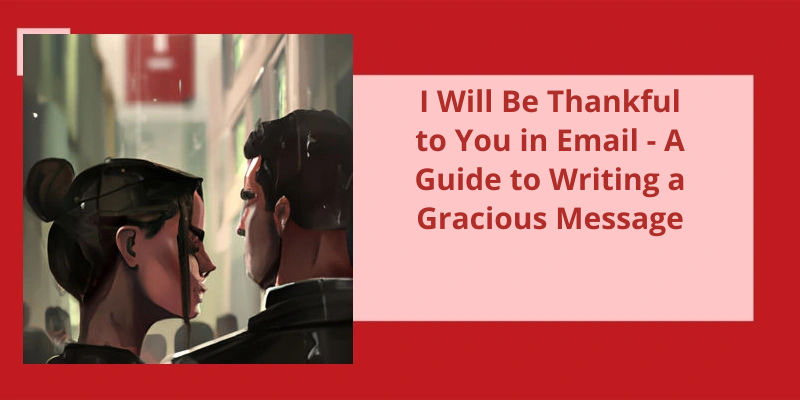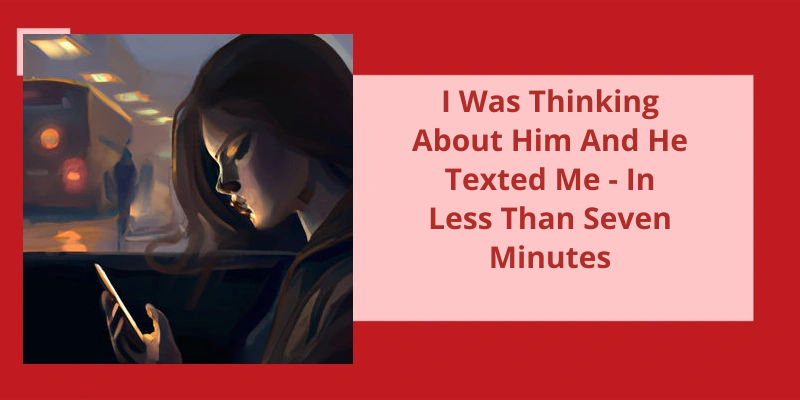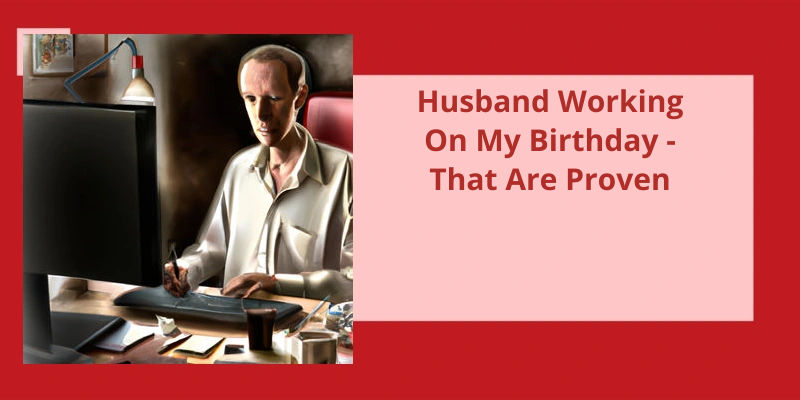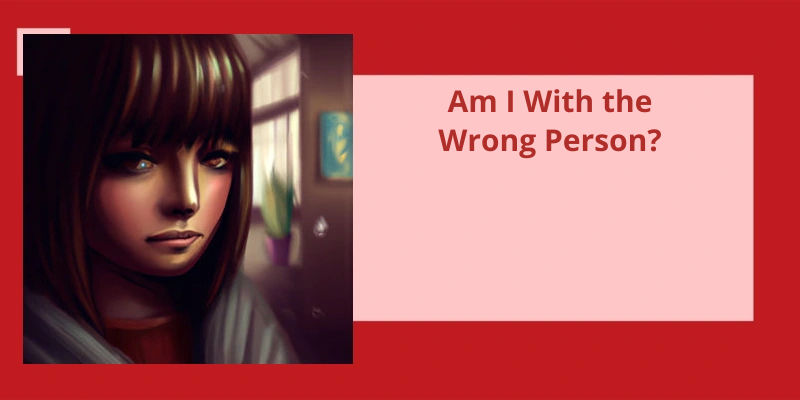In a world that often seems cold and indifferent, it can be easy to feel isolated and alone. But when we encounter people who selflessly offer their support and assistance, it can be a powerful reminder of the kindness and compassion that still exists in the world. Whether it's a small act of generosity or a major gesture of support, these actions can have a profound impact on our lives, giving us hope, strength, and inspiration to keep moving forward. So, to all those who’ve offered their support and help, I want to say one simple thing: thank you. Your kindness and generosity have touched my heart, lifted my spirits, and helped me see the best in myself and in others. I couldn't have done it without you, and for that, I’m eternally grateful.
What Does I’ll Be Very Thankful Mean?
The phrase “Ill be very thankful” is often used between individuals when one person is grateful or appreciative of something that another person has done for them. When someone says this phrase, they’re indicating that they’re deeply grateful for the help, support, or kindness they’ve received from the person they’re addressing.
In many cases, this phrase is used when a person has been going through a difficult time and needs help or support from others to get through it. When someone shows up to offer assistance during these tough times, it can be incredibly impactful and lifechanging.
Whether it’s offering a listening ear during a personal crisis, helping someone move into a new home, or simply showing up and being a positive presence in someones life, there are many ways that people can demonstrate kindness and support.
It’s an expression of gratitude that carries a deep emotional weight, and it’s a powerful way to show appreciation for the people who’ve helped us along the way. By using this phrase, we can strengthen our connections with others and build a more compassionate and caring world for all of us to live in.
When it comes to expressing gratitude, it’s important to take time to reflect on the blessings in your life. From the people you love to the necessities you’ve access to, there’s always something to be thankful for. One way to share your appreciation is by putting pen to paper and writing down what you’re thankful for. The process of writing can help you recognize your blessings and bring a sense of contentment to your life.
How Do You Write What I Am Thankful For?
It’s often said that gratitude is the key to happiness, and it’s certainly true that there’s great power in being thankful. However, expressing gratitude isn’t always easy, especially when we’re faced with difficult circumstances or challenging emotions. So how do we write what we’re thankful for? Here are a few tips to help you get started.
First and foremost, it’s important to take some time to reflect on your life and all of the blessings you’ve received. This might mean making a list of the things you’re thankful for or simply spending some quiet moments in contemplation. Whatever approach you choose, the key is to focus on the positive aspects of your life and to let go of any negative or critical thoughts.
One approach is to begin with a general statement or affirmation of gratitude, such as “I’m so grateful for all of the blessings in my life.”. From there, you can list specific items or people that you’re thankful for. Try to be as detailed and specific as possible, using sensory language to describe the sights, sounds, and sensations that make each item special to you.
Of course, you don’t have to limit your list to things – you can also express gratitude for people in your life. Start with your family and close friends, perhaps noting specific ways in which they’ve supported or inspired you. You might also express gratitude for the people you work with or the neighbors who make your community a better place.
When writing about the things you’re thankful for in life, it’s important to remember that gratitude doesn’t have to be reserved for big-ticket items like a new car or a dream job. It’s just as important to feel thankful for the small daily pleasures and routines that make life worthwhile – a cup of coffee in the morning, a warm blanket on a cold evening, a good book to curl up with. These little things can add up to a rich and fulfilling life.
However, by taking some time to reflect on your blessings and expressing gratitude in a concrete way, you can cultivate a sense of appreciation and joy that will carry you through even the toughest times. So take a deep breath, pick up a pen or open a document on your computer, and start writing today. The world is waiting to hear what makes you grateful!
Source: 100 Things To Be Thankful For in Your Life | Shutterfly
Expressing gratitude is an essential aspect of communication, and using words like grateful and thankful can add depth and sincerity to your message. Both words convey a sense of appreciation, but they’ve slight nuances in meaning and usage. So, let’s explore how to properly use grateful and thankful in a sentence.
How Do You Use Thankful and Grateful in a Sentence?
When it comes to expressing gratitude in your daily life, there are two common words that are often used interchangeably: thankful and grateful. Both of these words convey a sense of appreciation and recognition for someone or something that’s benefited you in some way. However, there are some subtle differences between the two that are worth exploring.
For example, if you receive a scholarship to attend college, you might say “I’m so grateful for this opportunity.”. It also tends to be a word that’s used in more written or formal settings.
Some common structures include using them as adjectives before a noun (“I’m thankful for your support”) or as standalone expressions at the beginning or end of a sentence (“Thankful for your help, Peter!” or “Peter, Im so grateful for your kindness”). The most important thing is to use these words sincerely and authentically, and to let the people in your life know how much you appreciate them.
Expressions of gratitude are powerful tools that help strengthen relationships and social bonds between individuals. One such expression that’s commonly used is “I’d be grateful”, which signifies one’s appreciation for assistance or support, while also implying a willingness to reciprocate or show gratitude in the future. This phrase’s subtle connotations make it a valuable social cue in various settings, from personal to professional.
What Does I Would Be Grateful Mean?
The phrase “I’d be grateful” carries significant weight in a wide range of contexts. Essentially, it’s an expression of thanks or appreciation for something that someone has done or is doing. The importance of this phrase comes from the fact that it’s a powerful way to acknowledge someones hard work and dedication, and to show that their efforts are truly appreciated.
For example, if you’re asking someone for their help or advice, saying “I’d be grateful” can help to emphasize the significance of your request, and show that you truly value their input. Similarly, if you’re thanking someone for their assistance or support, using this phrase can help to express your genuine appreciation for all that they’ve done.
By acknowledging that you’re in need of help or that someone else has done something important for you, you’re showing your vulnerability and highlighting the value of the other persons contributions.
Whether you’re expressing thanks, asking for help, or simply trying to show your appreciation, this phrase is a powerful tool for conveying your emotions and building deeper connections with others.
By using this phrase, you demonstrate your humility and acknowledge the value of the other persons contributions. So, use it whenever you feel the need to express your thanks or to acknowledge someone elses hard work and dedication.
Starting a formal thank-you email can sometimes feel intimidating, but it doesn’t have to be. By taking the time to personalize your message and include specific reasons for your gratitude, you can create a thoughtful and effective thank-you email. Using a template can also help provide structure and ensure that you cover all the necessary information. Here is an example of a formal thank-you email template you can use as a starting point.
How Do You Start a Formal Thank You Email?
Starting a formal thank-you email can be challenging, especially if you aren’t used to writing such messages. However, there are some steps you can follow to make sure that your email sounds professional and sincere. Firstly, you need to personalize your email to include specific details about the recipient and their contributions. This will show them that you’ve taken the time to think about what they’ve done for you and that you’re genuinely grateful.
Secondly, it’s essential to start your email with a formal greeting. Depending on the recipients relationship with you, this can be “Dear” or “Dear Mr./Ms. [last name].”. It’s best to avoid using informal greetings such as “Hi” or “Hey,” as these can come across as unprofessional.
Thirdly, you should state the reason why you’re writing the email. Whether it’s to thank someone for a gift, a referral, or help with a project, it’s essential to be clear and concise about what you’re thankful for.
Fourthly, you can use specific examples to illustrate the impact that the recipients actions have had on you. For example, if someone helped you get your dream job, you could mention how this has changed your life and how grateful you’re for their support.
Fifthly, you should express your gratitude in a sincere and heartfelt manner. This can be done by using positive language and emphasizing how much their help has meant to you. You could also mention any future opportunities that you’d like to work on with them and how you’re looking forward to building a stronger relationship with them.
Finally, it’s essential to close your email with a formal sign-off. Ideally, this should also match the recipients level of formality, such as “Sincerely,” “Kind regards,” or “Best regards.”. You can also include your name and contact information so that the recipient can get in touch with you if they need to.
Conclusion
Expressing gratitude and appreciation towards the people who’ve helped you along the way is a crucial part of building strong and meaningful relationships. Whether it's a mentor, friend, family member, or colleague, taking the time to acknowledge their involvement and support can make all the difference. Saying "thank you" sends a powerful message of respect, kindness, and gratitude. It shows that you value and appreciate the efforts put forth and that you recognize the importance of their contributions. So, if someone has helped you in any way, express your gratitude and let them know how much you appreciate their support. It may seem like a small gesture, but it can have a significant impact on both you and the people around you.






